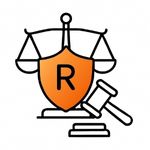
In South Africa, the need for quick access to cash has left many individuals vulnerable to unlawful lenders known as loan sharks. These lenders operate outside the legal framework set by the National Credit Act, often targeting those who are desperate or unable to secure credit through registered providers. While they may appear to offer an easy solution, loan sharks are associated with serious risks, including excessive interest rates, lack of consumer protections, and the use of intimidation or violence to recover payments.
Key Takeaways
- Loan Sharks Operate Illegally: Unregistered lenders in South Africa often charge unlawful interest rates, use intimidation, and bypass consumer protection laws, placing borrowers at serious financial and personal risk.
- Warning Signs Are Clear: Common indicators of a loan shark include missing NCR registration, no affordability checks, and illegal adverts promising “no credit checks” or “blacklisted welcome”.
- Legal Protections Exist: South Africans can report loan sharks to the National Credit Regulator (NCR) and seek safer alternatives such as debt counselling, consolidation, and credit from registered providers.
About Arcadia Finance
Getting a loan doesn’t have to be hard. Arcadia Finance connects you with 19 reputable lenders, all NCR-registered and fee-free to apply. It’s smart, safe, and tailored to you.
What Is A Loan Shark And How Do They Operate?
A loan shark refers to an individual or informal entity that lends money without being registered or regulated under South African law. These lenders typically charge exorbitantly high interest rates that exceed the limits set out by the National Credit Act. In many cases, they employ intimidation tactics or even threats of violence to collect repayments, and may unlawfully confiscate personal belongings if a borrower is unable to settle the debt. Their operations are usually linked to illegal activity and are not monitored by the National Credit Regulator, meaning they function entirely outside the bounds of legal credit practices.
These illegal lenders are commonly found operating in local communities, online platforms, or via word-of-mouth referrals within social circles. They often make use of undisclosed sources of capital and operate through informal or unregistered businesses. Unlike legitimate lenders, they do not conduct background checks or request credit histories before approving a loan.
Loan sharks are known for offering small sums of money with excessive repayment demands. The interest charged often greatly exceeds legal limits, resulting in repayment amounts far higher than the original sum. For instance, borrowing R50 000 from a loan shark could result in total repayments surpassing R100 000 if the loan is not repaid promptly. These inflated amounts may include unlawful interest charges, late payment penalties, and hidden fees, many of which are neither disclosed nor legally permissible.
To truly understand what separates legal lenders from loan sharks, it’s essential to know the regulations they must follow. The National Credit Act (NCA) outlines strict rules to protect borrowers and ensure fair treatment. Learn how this legislation shields South Africans from predatory practices and what to look for in a compliant lender.
DISCLAIMER: This article is for informational purposes only and does not constitute financial or legal advice. Readers should consult a qualified professional or contact the National Credit Regulator (NCR) for guidance on credit-related matters.

How To Identify A Loan Shark
A loan shark refers to an individual or business that lends money to consumers without following the legal obligations set out under South African law. These unlawful lenders operate outside the regulatory framework and fail to meet the requirements of the National Credit Act (NCA). Below are three major indicators that may suggest you are dealing with a loan shark.

Missing Registration Certificate
In accordance with the NCA, all credit providers must be registered with the National Credit Regulator (NCR). They are also legally obliged to display their registration certificate clearly at their business premises. This certificate includes a registration number that begins with “NCRCP”, which serves as a unique identifier and can be used if complaints need to be submitted to the NCR.
Where a lender either fails to display this certificate or cannot produce their NCRCP registration number upon request, it strongly suggests they are not officially registered. Any agreement you enter into with such an unregistered lender is considered unlawful and would not be legally enforceable in a court.

No Affordability Checks Done
Aside from being registered, credit providers must also carry out affordability checks before issuing any loans. This legal obligation requires them to examine your financial situation to determine if you are capable of repaying the loan. They will typically request documents such as recent bank statements or payslips to do so.
Should a lender offer you credit without asking for any supporting financial documents, this is a serious red flag and indicates that you are likely dealing with an illegitimate lender or loan shark.

Unlawful Loan Adverts
Loan sharks frequently rely on illegal and misleading advertising, which often targets financially vulnerable individuals. Common phrases in these adverts include “no credit check needed” or “blacklisted welcome”, which are designed to appeal to people who may struggle to access formal credit.
These adverts are in violation of the law, and responding to them puts consumers at considerable risk. Regardless of how urgent your financial situation may be, such advertising should be avoided entirely.
Rejected by banks doesn’t mean you’re out of options. If you’re desperate for cash, explore safer alternatives before taking risks with illegal lenders. Here’s how to get a loan when all banks say no – without turning to a loan shark.
Is It a Bad Idea to Borrow from a Loan Shark?
Borrowing from a loan shark is highly dangerous and can lead to serious financial and personal harm. Unlike registered lenders, loan sharks charge exorbitant interest rates, often far beyond what’s legal or manageable. Terms like “double bubble” usually mean you’ll repay far more than you borrowed, with no clear structure or limits.
Missing a payment can lead to harassment, threats, or even violence. You may be followed, bullied, or pressured into borrowing again just to repay the first loan, giving the loan shark increasing control over you. In some cases, they might demand favours or illegal tasks in lieu of payment, putting you in further danger.
Loan sharks often appear friendly and understanding at first, pretending to care about your situation. But this is a tactic to gain your trust. Many switch unpredictably between kindness and intimidation to keep you off balance and easier to manipulate.
Risks Associated with Unlicensed Lending
Excessive Interest Charges
Loan sharks operate without any regulatory restrictions and frequently impose interest rates significantly higher than those allowed by registered credit providers. As a result, borrowers often struggle to repay what they owe, making it exceptionally difficult to escape long-term debt.
Aggressive And Unsafe Collection Tactics
In addition to charging exorbitant rates, these unregulated lenders are known for using intimidating and sometimes violent methods to recover debts. This behaviour not only worsens financial distress but also places borrowers at serious risk of personal harm.
Lack Of Transparency In Loan Terms
Because they are not bound by consumer protection laws, illegal lenders are under no obligation to disclose fees or terms clearly. They often insert hidden charges and unfavourable clauses into contracts, which can leave borrowers unaware of the true cost of the loan until it is too late.
Recurring Borrowing Due To Harsh Conditions
Due to the unmanageable repayment conditions, many individuals are forced to take out new loans to cover previous ones. This results in a repetitive and destructive cycle of borrowing that can be extremely difficult to break.
DISCLAIMER: The information provided in this article is intended to raise awareness about illegal lending practices in South Africa. If you suspect you’ve borrowed from a loan shark, contact the NCR or seek legal assistance.
What Sets Legal Lending Apart In South Africa
In South Africa, credit lending is strictly regulated by the National Credit Act (NCA) No. 34 of 2005, which provides a framework for fair, transparent, and accessible lending. The Act was established to protect consumers from exploitative credit practices and ensure that all credit providers operate under clear and consistent rules.
The Role Of The National Credit Regulator (NCR)
The National Credit Regulator (NCR) plays a central role in overseeing the credit market. It is responsible for registering credit providers, credit bureaus, and debt counsellors, and for monitoring their compliance with the NCA. The NCR also educates consumers about their rights and investigates complaints against non-compliant providers. Through enforcement actions and regulatory oversight, the NCR helps ensure that lending practices remain legal and ethical across the country.
Falling into a loan shark trap is just one kind of financial scam. Another growing threat is loan fraud, where scammers pretend to be legitimate lenders to steal your money or identity. Protect yourself by knowing what red flags to watch for.
Key Differences: Legal Lenders vs Loan Sharks
| Aspect | Legal Lenders (NCR Registered) | Loan Sharks (Illegal/Unregistered) |
|---|---|---|
| Regulation & Registration | Registered with the National Credit Regulator (NCR) and adhere to the National Credit Act (NCA). | Not registered; operate outside the law with no oversight or accountability. |
| Interest Rates | Subject to maximum interest rates set by the NCA, depending on loan type. | Often charge excessively high or arbitrary interest, sometimes weekly or even daily. |
| Contracts & Paperwork | Provide written loan agreements clearly outlining terms, fees, and repayment schedules. | Rarely offer contracts; may rely on verbal agreements or unclear terms. |
| Credit & Affordability Checks | Must perform proper credit and affordability assessments before lending. | Frequently skip checks; lend to anyone, often trapping people in unaffordable debt. |
| Consumer Rights | Borrowers are protected under the NCA, including access to dispute resolution and credit information. | No legal protection; complaints cannot be addressed through formal channels. |
| Collection Methods | Must use legal and ethical debt collection methods; harassment and threats are prohibited. | Often use intimidation, harassment, threats or violence to collect money. |
| Loan Terms & Conditions | Transparent, with disclosure of all fees, repayment terms, and conditions. | May hide fees, change terms at will, or charge illegal penalties. |
| Security & Collateral | May request security legally (e.g. for secured loans), but cannot keep personal documents. | Often confiscate IDs, bank cards or SASSA cards, illegally holding them as “security.” |
| Reporting to Credit Bureaus | Report loan activity to credit bureaus, helping to build your credit profile. | Do not report, so loans don’t help your credit score, and missed payments don’t show officially. |
| Accountability & Oversight | Can be held accountable by the NCR or the courts for misconduct or non-compliance. | Operate in the shadows, often under false names or in informal environments. |
DISCLAIMER: The content provided is for general awareness and educational purposes only. If you are concerned that you may be dealing with an illegal lender or are experiencing financial distress, please contact the National Credit Regulator or a qualified debt counsellor for assistance.

How To Report A Loan Shark In South Africa
If you’ve encountered a loan shark, an unregistered lender operating outside the law, it’s crucial to report them to protect yourself and others from potential harm. The National Credit Regulator (NCR) is the primary authority overseeing credit practices in South Africa and is responsible for investigating complaints against illegal lenders.
Steps to Report a Loan Shark
- Gather Evidence: Collect all relevant information about the loan shark, including their name, contact details, any communication you’ve had, and details of the loan agreement. If possible, obtain copies of any documents or messages exchanged.
- Complete the Complaint Form: Download and fill out Form 29, the official complaint form provided by the NCR. This form requires details about the complainant, the credit provider, and the nature of the complaint. Ensure all sections are completed accurately.
- Submit the Complaint: Once the form is completed, submit it along with any supporting documents to the NCR.
Conclusion
Loan sharks pose a significant threat to financially vulnerable South Africans, often operating without any regard for consumer protection laws or ethical lending practices. Their illegal activities, ranging from charging extreme interest rates to using threats and intimidation, can trap borrowers in cycles of unmanageable debt. Fortunately, the National Credit Act offers strong protections for consumers, and registered credit providers must follow strict guidelines. By learning how to recognise illegal lenders, understanding your rights, and reporting unlawful activity to the National Credit Regulator, you can help safeguard yourself and your community from exploitation.
Frequently Asked Questions
A loan shark is an unregistered and illegal lender who operates outside South African credit regulations. They typically charge excessive interest, avoid legal procedures, and may use threats or intimidation to collect repayments.
All legal lenders in South Africa must be registered with the National Credit Regulator (NCR) and display a valid registration number beginning with “NCRCP”. You can verify this on the NCR’s website or by requesting their certificate.
If you’ve borrowed from a loan shark, do not ignore the situation. Gather evidence, avoid further engagement, and report the lender to the NCR or the South African Police Service for assistance and investigation.
No, any agreement with an unregistered lender is unlawful under the National Credit Act and is not legally enforceable in court. Such agreements carry no legal weight and place borrowers at risk.
You can report a loan shark by submitting a complaint to the NCR. Fill in Form 29 and include any supporting documents or evidence.
Fast, uncomplicated, and trustworthy loan comparisons
At Arcadia Finance, you can compare loan offers from multiple lenders with no obligation and free of charge. Get a clear overview of your options and choose the best deal for you.
Fill out our form today to easily compare interest rates from 19 banks and find the right loan for you.




